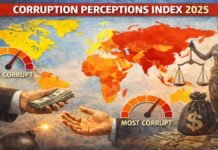
Vijay Mallya, once known as the “King of Good Times,” recently broke his nine-year media silence in a groundbreaking four-hour podcast with entrepreneur and content creator Raj Shamani. The controversial businessman, who has been a fugitive from Indian law since 2016, used this platform to share his side of one of India’s most talked-about financial scandals.
Brief Introduction to Vijay Mallya
Vijay Mallya, born on December 18, 1955, in Mangaluru, Karnataka, is a former Indian businessman and politician who became synonymous with India’s corporate excess and subsequent banking crisis. The son of Vittal Mallya, former chairman of the United Breweries Group, Mallya built a business empire spanning liquor, airlines, and sports. He served as chairman of United Spirits, India’s largest spirits company, and founded the now-defunct Kingfisher Airlines in 2005. Mallya also owned the Royal Challengers Bangalore IPL cricket team and was involved in Formula One racing. However, his empire crumbled amid allegations of fraud and money laundering involving over ₹9,000 crore, leading to his departure from India in 2016 and subsequent fugitive status.
Brief Introduction to Raj Shamani
Raj Shamani, born on July 29, 1997, in Indore, Madhya Pradesh, has emerged as one of India’s most influential content creators and entrepreneurs. Starting his journey at age 16 with his family’s FMCG business, Shamani Industries, he helped grow the company’s revenue 20-fold. Despite initially struggling with public speaking, he transformed this weakness into his greatest strength, becoming a renowned podcaster and motivational speaker. Shamani is the founder of House of X, India’s first creator-led house of brands, and hosts “Figuring Out,” which has become India’s number one podcast on Spotify. With 3.77 million YouTube subscribers and a net worth of approximately ₹91 crore, he has established himself as a major voice in India’s digital content landscape.
Major Revelations from the Podcast
Denial of Fraud Allegations
Mallya’s most emphatic statement was his categorical denial of being a fraudster. “You may call me a fugitive, but I didn’t run away. I flew on a prescheduled visit,” he declared. He insisted that while he accepts being called a fugitive, he rejects being branded a “chor” (thief), stating “where is the ‘chori’ coming from?”. Mallya maintained that it was Kingfisher Airlines as a corporate entity, not him personally, that borrowed the funds.
Government’s Role in Kingfisher’s Downfall
One of the most explosive revelations involved former Finance Minister Pranab Mukherjee’s alleged advice during the 2008 financial crisis. Mallya claimed that when he wanted to downsize Kingfisher Airlines during the economic downturn, Mukherjee advised him to continue operations instead of shutting down, promising that banks would provide support. “I was told not to downsize, you continue, banks will support you. That is how it all started,” Mallya revealed.
Meeting with Arun Jaitley
Mallya confirmed meeting then-Finance Minister Arun Jaitley in Parliament before leaving India in 2016, telling him to ask banks to sit across the table and settle with him. He clarified that this was not a formal office meeting but a brief encounter where he made this single request.
Claims of Excess Recovery by Banks
Perhaps the most significant financial revelation was Mallya’s claim that banks have recovered more than what was owed. He stated that while Kingfisher Airlines owed around ₹6,200 crore, banks had already recovered ₹14,000 crore. In December 2024, he claimed banks had recovered ₹14,131.60 crore against a judgment debt of ₹6,203 crore, including interest.
SBI’s Involvement Through Merger
Mallya challenged the narrative of direct borrowing from State Bank of India, explaining that SBI became a lender to Kingfisher by default after its merger with Deccan Airlines, not through direct borrowing. This revelation aims to counter the public perception that he directly approached SBI for loans.
Heartfelt Apology to Employees
In a rare display of emotion, Mallya issued a public apology to his former employees who lost their jobs during Kingfisher’s collapse. “I would say I’m deeply sorry for what happened to them. I would say that I’m deeply sorry that some of them didn’t get paid their salaries. I have no excuses to offer. I take full responsibility,” he stated.
Conditions for Return to India
When asked about returning to India, Mallya expressed conditional willingness: “If I have assurance of a fair trial and a dignified existence in India, I will think about it seriously”. He cited concerns about India’s detention conditions, referencing UK High Court judgments that deemed Indian detention conditions violative of human rights.
Criticism of India’s Business Environment
Mallya launched a scathing attack on India’s business climate, calling the ‘ease of doing business’ a myth. He claimed that bureaucratic and political barriers are deeply rooted in the Indian system and that during his tenure, he had to maintain favorable relations with 29 Chief Ministers to keep his business operations running.
Media Trial and Public Perception
Mallya strongly criticized Indian media and government for turning him “from hero to zero”. He expressed frustration over what he termed a relentless media trial and stated that this podcast gave him a platform to tell his story without spin.
RCB and Virat Kohli Connection
On a lighter note, Mallya revealed his role in building Royal Challengers Bangalore, claiming he had handpicked Virat Kohli and saw the IPL as a game-changer for Indian cricket. He shared his vision of creating a winning team and his disappointment when RCB struggled for years before finally achieving success.
Public and Media Response
The podcast has generated unprecedented engagement, garnering close to 3 million views within hours of release and sparking widespread online reactions. The interview has been praised for Shamani’s thorough preparation and bold journalism, with many considering it a masterstroke that positions him as one of India’s most relevant digital voices.
This rare public appearance by Mallya after nine years of silence has reignited debates about India’s banking crisis, corporate governance, and the treatment of business failures. Whether his revelations will influence public opinion or legal proceedings remains to be seen, but the podcast has undoubtedly provided a platform for one of India’s most controversial figures to present his version of events to millions of viewers.










































